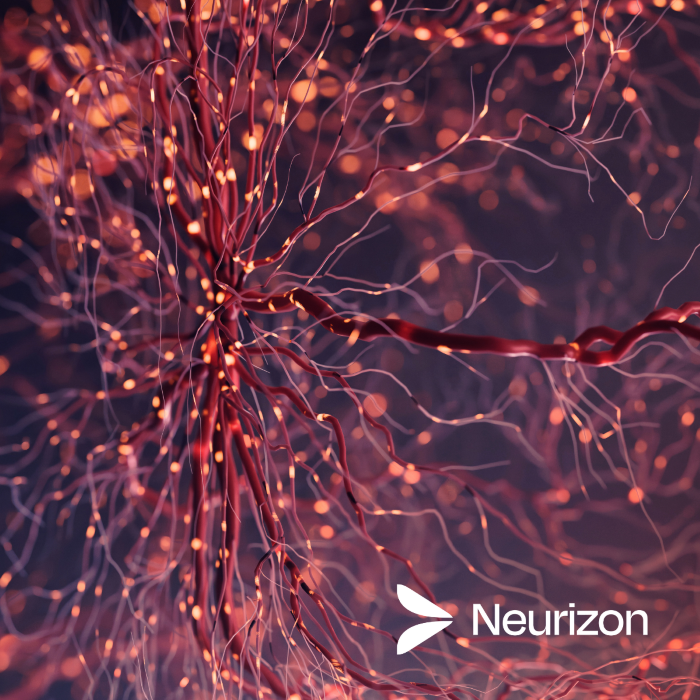Neurizon Therapeutics Limited (“Neurizon”), a clinical-stage biotech company dedicated to advancing treatments for neurodegenerative diseases, is pleased to advise that results from an independent study undertaken in collaboration with Tessara Therapeutics (“Tessara”) will be presented by the group’s Principal Scientist and Alzheimer’s Disease expert, Dr Mark Greenough at the AD/PD 2025 Advances in Sciences & Therapy conference on April 2nd to 3rd. AD/PD is the preeminent international conference on Alzheimer’s and Parkinson’s diseases and related neurological disorders in Vienna, Austria, from 1 to 5 April.

Image Credit: Neurizon Therapeutics Limited
The results are part of a study in ongoing collaboration with Tessara, a leading biotechnology company pioneering a new approach in 3D cell-based models of the brain, having developed its RealBrain® 3D human micro-tissues technology that replicates the biological complexity of the human brain in a scalable and reproducible manner. Tessara has validated and recently launched two brain models: the ArtiBrain™ model (healthy human brain) and the ADBrain™ model (Alzheimer’s disease). Tessara has leveraged these models to explore the effect of Neurizon’s lead candidate, NUZ-001.
During the study, NUZ-001 and NUZ-001 Sulfone (major active metabolite) were tested in the ArtiBrain™ model over a three-day period at doses ranging from 5 μM to 50 μM. NUZ-001 demonstrated an excellent safety profile in Tessara’s RealBrain® micro-tissues. The compounds offered protection against a newly identified form of cell death, ferroptosis (induced by RSL3 exposure). This unique type of programmed cell death is mechanistically different from apoptosis, autophagy, or necrosis and has been implicated in diseases where lipid peroxidation is a mechanism of neurodegeneration, such as Alzheimer's disease, Parkinson’s disease, and amyotrophic lateral sclerosis.
Confocal imaging and subsequent neuronal network analysis, using Tessara’s algorithms, further revealed that NUZ-001 and NUZ-001 Sulfone increased neuronal (B3-tubulin+) branching. This suggests an effect on neural connectivity and plasticity, with longer-term drug treatments potentially being required to elicit an overall effect on network and synaptic density.
We are delighted for Neurizon on the results they have generated in our ArtiBrain™ model. These findings indicate that short-term treatment with NUZ-001 and NUZ-001 Sulfone maintains an excellent safety profile in Tessara’s RealBrain® micro-tissues. In addition, the compounds appear to offer neuroprotective effects against ferroptosis and encourage neural branching, potentially boosting plasticity by enabling neurons to form additional connections. While further research is needed to clarify the mechanisms responsible for these benefits, current data suggest that longer-term treatment may enhance network density and overall plasticity. In humans, this could translate into tangible benefits in cognition, learning, memory, or resilience to neurodegenerative processes involved in diseases such as Alzheimer's disease, Parkinson’s disease and Amyotrophic Lateral Sclerosis (ALS)."
Dr Christos Papadimitriou, Managing Director and Chief Executive Officer, Tessara Therapeutics
As part of ongoing initiatives with Tessara, the therapeutic efficacy of NUZ-001 is now being assessed through other screening modalities, including Tessara’s ADBrain™ platform, for sporadic Alzheimer’s disease. Results from further testing are anticipated this quarter and will be used to assess the potential for NUZ to expand its lead asset into a broader range of indications.
Managing Director and Chief Executive Officer, Dr Michael Thurn commented: “These results provide initial validation of the broader potential use of NUZ-001 in other neurodegenerative diseases, highlighting its safety and efficacy in ArtiBrain™ 3D human micro-tissues model. The presentation of the study results at the world’s leading Alzheimer’s and Parkinson’s diseases and related neurological disorder conference in Vienna, is also a major milestone for the Company, which will provide strong independent support for our lead asset.
“I would like to take this opportunity to thank Tessara Therapeutics for the excellent collaboration to date, which will continue as we assess NUZ-001’s potential as a treatment of Alzheimer’s disease in the ADBrain™ model. These additional results are expected to materialise this quarter and have the potential to highlight NUZ-001’s potential in another widespread and debilitating condition.”
A copy of the poster presentation by Dr Greenough at AD/PD can be found in the original announcement on Neurizon Therapeutics Investor Hub.
This announcement has been authorized for release by the Board of Neurizon Therapeutics Limited.